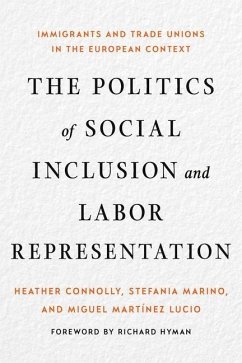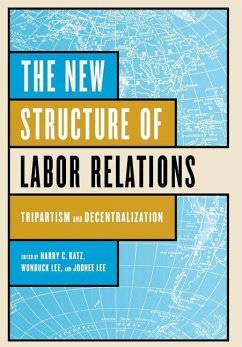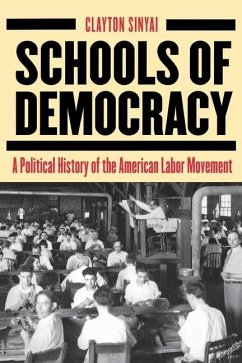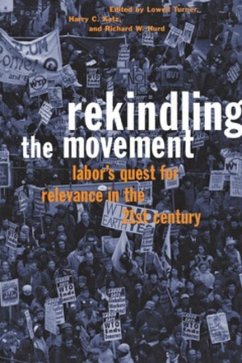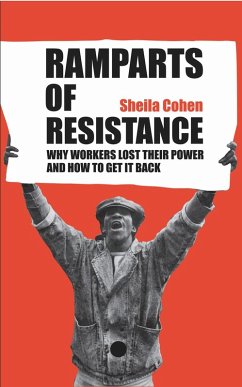
Fighting for Partnership (eBook, PDF)
Labor and Politics in Unified Germany

PAYBACK Punkte
61 °P sammeln!
West Germany from 1949 to 1990 was a story of virtually unparalleled political and economic success. This economic miracle incorporated a well-functioning political democracy, expanded to include a "social partnership" system of economic representation. Then the Wall came down. Economic crisis in the East-industrial collapse, massive layoffs, a demoralized workforce-triggered gloomy predictions. Was this the beginning of the end for the widely admired "German model"? Lowell Turner has extensively researched the German transformation in the 1990s. Indeed, in 1993 he was at the factory gates at ...
West Germany from 1949 to 1990 was a story of virtually unparalleled political and economic success. This economic miracle incorporated a well-functioning political democracy, expanded to include a "social partnership" system of economic representation. Then the Wall came down. Economic crisis in the East-industrial collapse, massive layoffs, a demoralized workforce-triggered gloomy predictions. Was this the beginning of the end for the widely admired "German model"? Lowell Turner has extensively researched the German transformation in the 1990s. Indeed, in 1993 he was at the factory gates at Siemens in Rostock for the first major strike in post-Cold War eastern Germany. In that strike, and in a series of other incisively analyzed workplace and job developments in eastern Germany, he shows the remarkable resilience and flexibility of the German social partnership and the contribution of its institutions to unification. His controversial and, to some, radical findings will stimulate debate at home and abroad.
Dieser Download kann aus rechtlichen Gründen nur mit Rechnungsadresse in A, D ausgeliefert werden.




